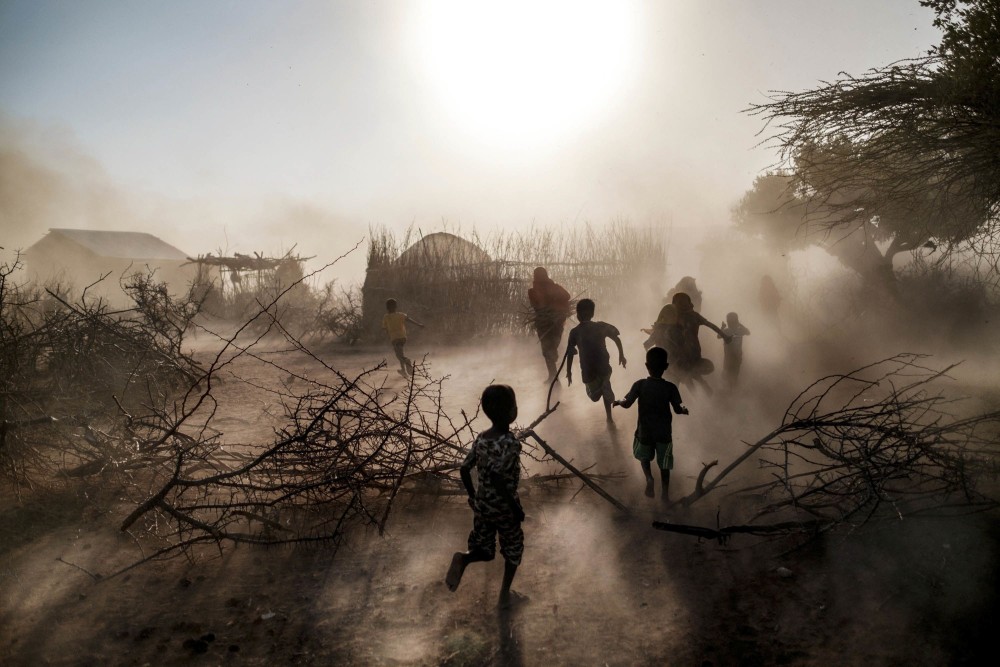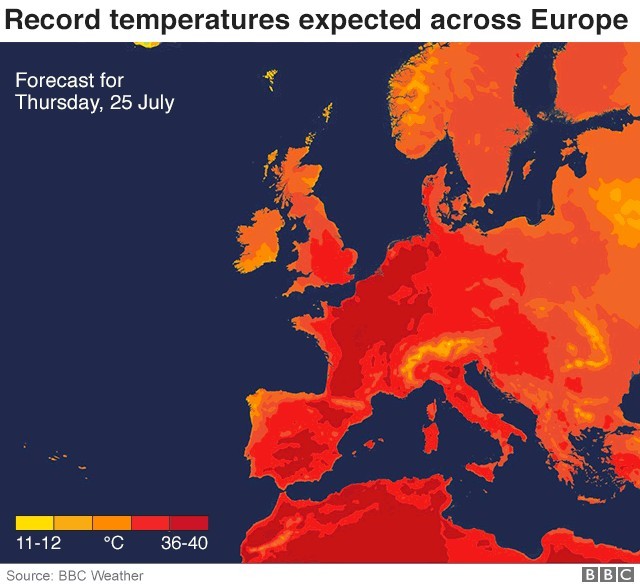We are living in a period of climate emergency. For the first half of the year, we have witnessed Africa experience severe impacts of climate change. The Horn of and East Africa has experienced its worst Climate Crisis, drought in 40 years; flash floods that have killed dozens, and unpredictable seasonal rains.
We are witnessing a rise in global temperatures, as evidenced in most parts of the Northern Hemisphere. Early this month, North Africa also experienced temperatures near 50C. This week, the first and second most prominent U.S. and China economies recorded temperatures over 50C.
Temperatures in Europe are just as intense. And as the heat rises, vegetation is getting drier. In turn, wildfires are multiplying and raging across Europe. And the United Nations reports that heat waves are the new normal. The state of the world is calling for immediate sustainable solutions.
With the current global state, how is East Africa adapting to the climate emergency? East Africa is not one to lag; the region has a knack for leapfrogging with innovation. East Africa is experiencing an upsurge of clean technology solutions in efforts to address the climate crisis.
Kenya is making strides for clean air and low carbon mobility through e-mobility technologies thanks to startups like BasiGo, EcoBodaa, and Ampersand. Kenya’s public transportation is revolutionized through electrified vehicles, booking apps for e-traveling, and battery swapping and charging stations. Kenyan citizens are now experiencing clean public transit with electric motorcycles, buses, and tuk-tuks.
An environmental tech company, Kubik recycles plastic waste into low-carbon buildings and affordable homes. In Kenya and Ethiopia, the startup turns plastics considered impossible to recycle into plastic bricks. The company recently announced on Twitter that it closed $3.4M in seed funding to extend production in Ethiopia. The current amount of plastic consumption in Ethiopia is about 386,000 tonnes/year, and only about 40% is recycled. This scale-up will help Ethiopia tackle the issue of plastic waste.
In Tanzania, No Taka Hub, under the Water Margin nonprofit, is utilizing geospatial technologies to generate new data on climate-caused mobility, thus narrowing the existing information gap. Their geospatial mobility project is beyond the spheres of academics. The project compensates for biodiversity loss, incentivizes climate-smart agriculture, and strengthens food security.
Their task is designed with a focus on migrants because this is a group usually forgotten even though it is vulnerable to climate change with a lack of resources to adapt. The organization also equips youth and women with green digital knowledge and skills to build resilience during this climate crisis.
In support of the growing number of electric vehicles, the Kenyan government passed a special e-mobility tariff effective April 1, 2023. The introduced Time of Use tariffs offer different price schemes for electricity at other times of the day. Electric vehicles require high energy consumption, and the taxes allow e-mobility companies to charge their fleet off-peak hours when electricity is cheaper. This special tariff, introduced by Kenya’s Energy and Petroleum Regulatory Authority, can catalyze Kenyans to embrace electrified transportation fully.
Read: Benefits of the Time of Use Tariff for E-Mobility in Kenya
East Africa is fertile for new technologies from clean and renewable energies, edtech, fintech, and climate tech. Unfortunately, one of the startups’ most significant challenges is access to finance, even with skilled talents, unique ideas, and exposure. This has been the case for No Taka Hub, struggling to find funding to help them commence their project in Kigoma— Even Kubik before closing its seed funding.
“There’s an extensive network within the professional sphere that I could tap into initially. Even so, having that did not make it any easier to raise funds. I’ve met over 600 people in two years. Out of those 600 people, about 20 of them have become investors.” Kidus Asfaw Kubik’s CEO explained as reported by Economic Times.
For the past five years, Africa has seen an injection of funding in technology. TechNext reported that $2.8 billion in funding has been invested in climate-related startups in Africa since 2019. According to an analysis of the Nationally Determined Contributions (NDCs), Africa needs an estimated US$579.2 billion in adaptation finance from 2020–2030. Still, the funding flowing in Africa is not enough.
The African Tech Startups Funding 2022 report by Disrupt Africa documents a discouraging funding pattern that the continent is facing. The continent is concerned about this funding gap, especially for startups requiring between 5 to 50 million USD—the second pattern funding gap for underrepresented founders, including black female founders.
“No Taka is committed to reversing the effects of climate change in our environment here in Tanzania, especially at grassroots levels. But this commitment is costly; the technology we use is expensive. We are making a difference, but we can make a substantial difference with the right funding and support, And this is not only for No Taka. Our region has intelligent young minds with great ideas dedicated to facilitating a change but lacks finances to take their ideas further to make an impact,” Careen Joel, the founder of the female-led eco hub in Tanzania, commented on the lack of funding.
Disrupt ‘Africa’s annual report documented that tech funding in Africa exceeded $ 3 billion in 2022. However, from the latest data of the first quarter of 2023 shared by Disrupt Africa, funding has declined compared to last year. While startups were able to raise US$1,515,556,000 by April 1, 2022, only US$649,303,000 has been introduced this year by April 1. Last year’s Q1 accounted for around half the startups and half the total investment for 2022, so if the current trajectory holds, year-on-year funding looks to decline by more than 50 percent, reports Disrupt Africa.
In East Africa, Kenya dominates in startup funding and is the third in overall African startup funding. According to Disrupt Africa, Kenya bagged 17.2% of the continent’s overall budget in 2022, with 91 startups receiving funding. But where is the rest of East Africa in climate tech grant? With the global decline of fundraising and investments as seen in 2022 and with predictions of further deterioration, should East African climate tech startups closely consider debt funding and share funding as sources of finance?
Read more Climate articles by Suzie Berya here.


